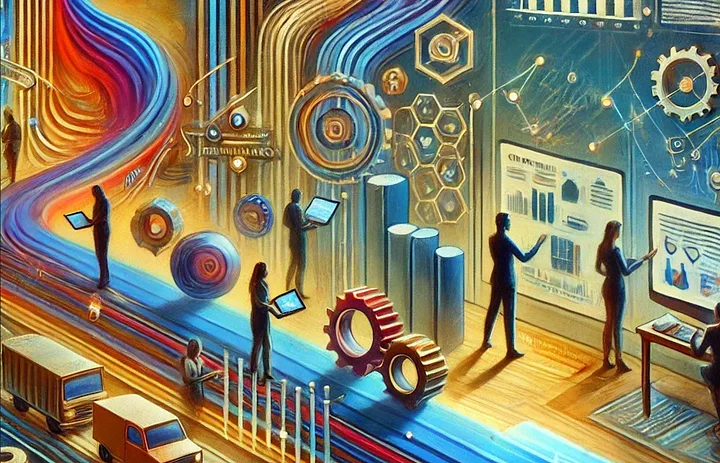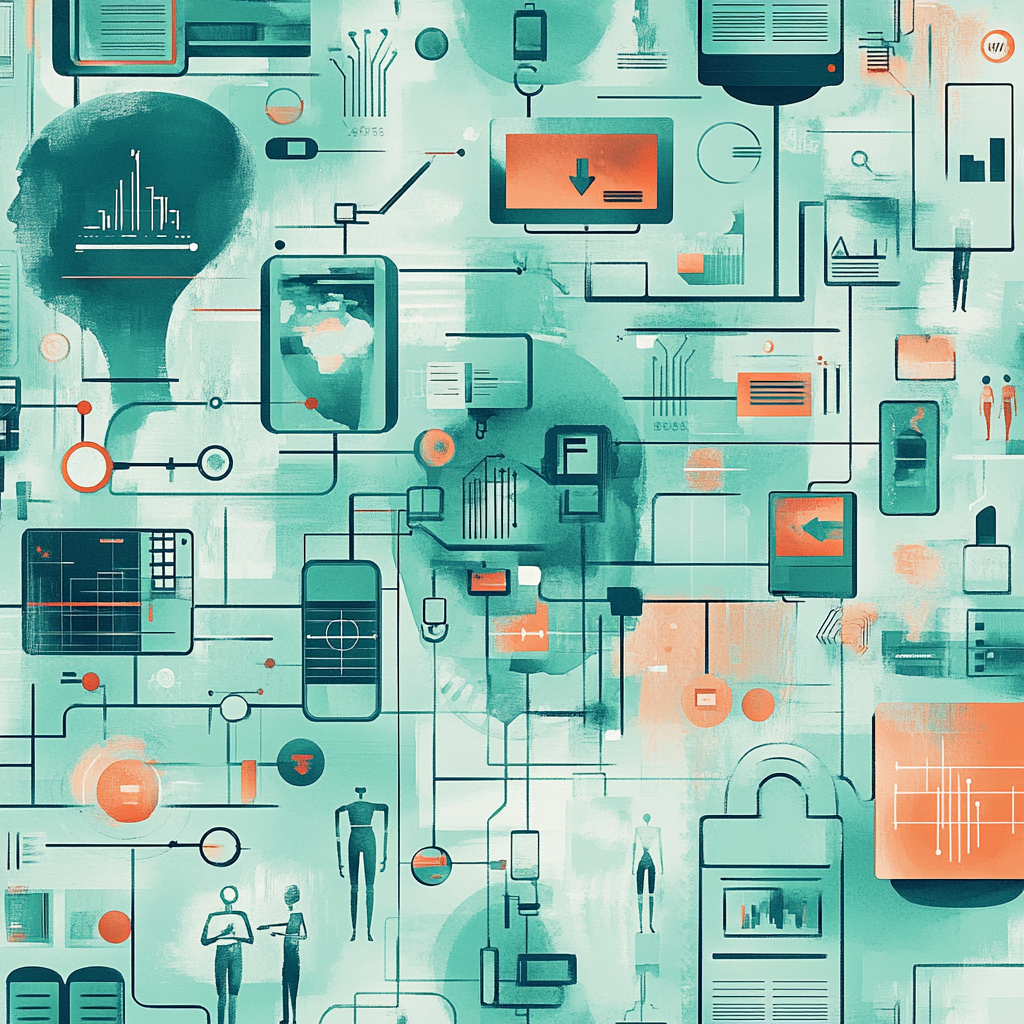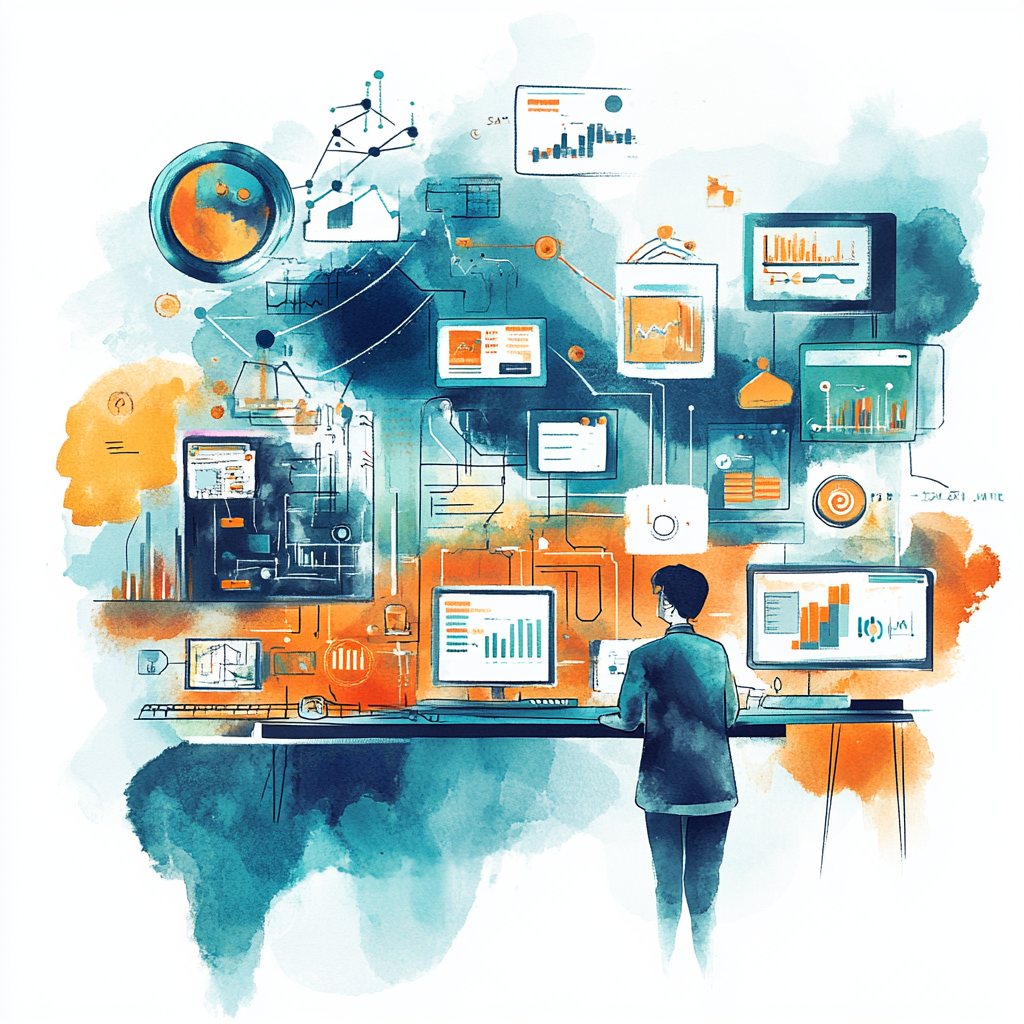Getting ready for your automation journey? Be sure you have the basics right first with our Ops Automation Guide.
As we move toward 2025, automation is evolving rapidly, transforming industries through new technologies like AI, machine learning, and 5G. These advancements make businesses more efficient, agile, and able to predict issues before they arise. In this article, we explore the trends, technologies, challenges, and opportunities shaping the future of automation—and how WorkDone’s AI can help businesses easily uncover high-ROI automation opportunities.
Key Takeaways
- Automation will increasingly depend on AI and machine learning to proactively solve problems before they happen.
- Autonomous machines will dominate sectors like manufacturing and logistics, working independently.
- 5G technology will accelerate communication between automated systems, enabling real-time optimization and predictive maintenance.
- WorkDone’s AI discovers your highest-ROI automation opportunities, identifies best-practice workflows, and stores your Corporate Memory. It streamlines processes and optimizes operations without needing to invest in large-scale automation upfront.
Emerging Trends in Industrial Automation
- Increased AI Adoption: AI improves predictive maintenance and quality control, ensuring better production outcomes.
- Autonomous Systems Expansion: Fully automated production lines in industries like automotive and electronics will become more common, handling complex tasks with minimal human intervention.
- 5G Integration: 5G enhances factory efficiency through real-time data exchange, allowing for instant adjustments in production.
- Human-Machine Collaboration: As automation takes over repetitive tasks, workers will need training to maximize their value in strategic decision-making alongside collaborative robots (cobots).
Key Technologies Driving the Future of Automation
Beyond AI, which has triggered a massive technological revolution, these factors are also shaping the future:
- Advanced Sensors: Machines will use real-time monitoring for operational adjustments, improving efficiency.
- Cloud-Based Automation: Cloud solutions will enable remote management, reducing on-site equipment costs.
- Robotics and Intelligent Software: Cobots will work alongside humans, boosting productivity and ensuring safe collaboration.
- Predictive Maintenance: AI-driven predictive systems will reduce downtime and minimize maintenance costs.
Challenges and Opportunities in Automation
Key Challenges to Anticipate
The future of automation is exciting, but it comes with its own challenges. Here are some key issues businesses are likely to face:
- Economic Constraints: New equipment and training costs can be a big hurdle for many companies. Financial ups and downs can also make it hard for businesses to invest in automation.
- Regulatory and Compliance Issues: As technology evolves, new rules will come into play. Companies must keep up with these changes, which can be complicated and costly.
- Workforce Displacement and Skills Gap: Some jobs could disappear as machines take over more tasks. However, this would create a skills gap, meaning workers may need new training to keep up with technology. For employers, retaining and upskilling expert employees will become critical to stay ahead of the competition.
- Cybersecurity Risks: With more machines connected to the internet, protecting against cyber threats is crucial. Companies must invest in solid security measures to safeguard their systems.
Opportunities for Innovation
Despite the challenges, there are also many opportunities:
- Customization and Flexibility: Businesses will want automation solutions that fit their specific needs, leading to more tailored systems.
- New Job Creation: While some jobs may vanish, new AI development and maintenance roles will emerge, creating opportunities for skilled workers.
- Sustainability: Companies can innovate by developing greener automation solutions, meeting consumer demand for eco-friendly products.
Automation is entering a new phase, where AI and machine learning take the lead in optimizing operations. As industries move toward 2025 and beyond, businesses must harness automation’s potential—not just to replace tasks—but to empower employees to focus on strategic growth. WorkDone’s AI offers limitless opportunities to identify the right automation processes that fit seamlessly into your business, boosting efficiency, cutting costs, and preparing your organization for the future.
Frequently Asked Questions
What is industrial automation?
Industrial automation is when machines and technology are used to help make products and manage processes in factories. It helps businesses work faster and reduce mistakes.
How will AI change automation by 2025?
By 2025, AI will help machines predict when they might break down, which means less downtime. It will also help in checking products for quality faster than humans.
What are autonomous systems?
Autonomous systems are machines that can work on their own without needing human help, like self-driving cars or robots in factories.
Why is 5G important for automation?
5G is important because it allows machines to communicate quickly and reliably. This helps make industrial operations smarter and enables faster responses to change.
How can automation be more environmentally friendly?
Automation can be greener by using less energy and reducing waste in production. Companies are also focusing on sustainable practices to meet consumer demand for eco-friendly products.



